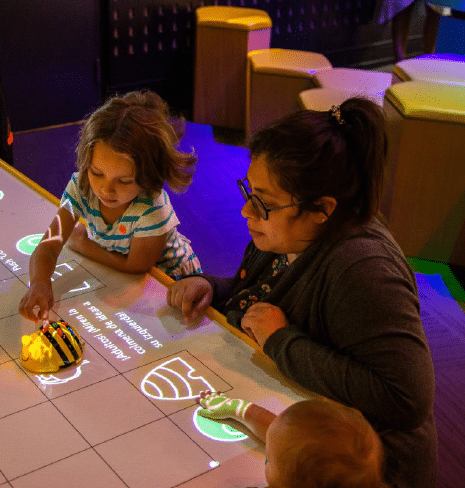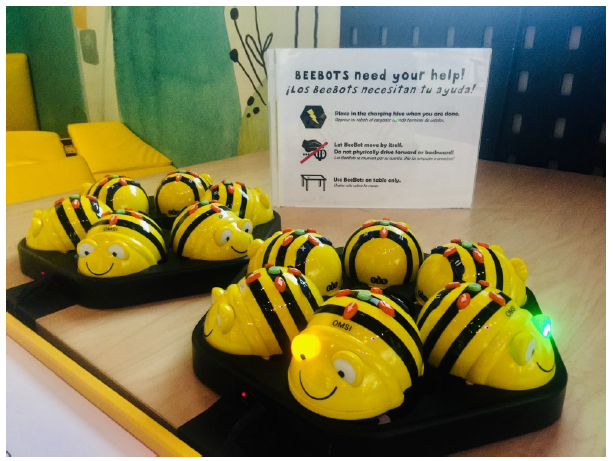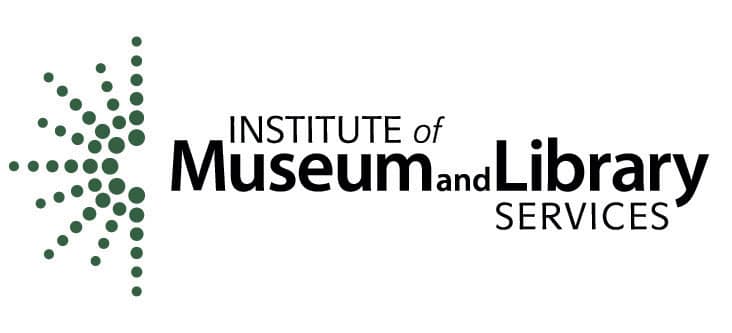Caregivers fostering child development through play
2018-2021

Project Description
How do caregivers learn about the role of play in their children’s development? How can we engage more caregivers in co-learning with their children?
Play Labs was a series of three pop-up, experimental play experiences (called “Adventures”) that supported
- Young children’s (0-8) need to learn through open-ended play
- Caregivers’ need to understand and facilitate their children’s development
- OMSI’s need to provide more accessible, meaningful experiences for families with young children.
Each Adventure highlighted a specific aspect of child development, with accompanying interpretative materials that encouraged caregivers to observe their children playing as a way to learn more about the child’s cognitive and creative development.
OMSI partnered with Impact NW, whose caregivers and staff learned along with us and provided input on the development and evaluation of the three Adventures.

Resources & Research
Research
Play Labs Summative Evaluation ↓
The Play Labs evaluation used Team-Based Inquiry to iteratively improve the Adventures and understand how adults and children engaged as learners.
Collaborators
Partners
Impact Northwest
Mike Yager
Advisors
Jennifer LaBounty, Lewis & Clark College
Erik Nilsen, Lewis & Clark College
Regional Arts and Culture Council (RACC)
Funder

This project was made possible in part by the Institute of Museum and Library Services under Grant No. MA-10-16-0340-16. The views, findings, conclusions or recommendations expressed in this website) do not necessarily represent those of the Institute of Museum and Library Services.